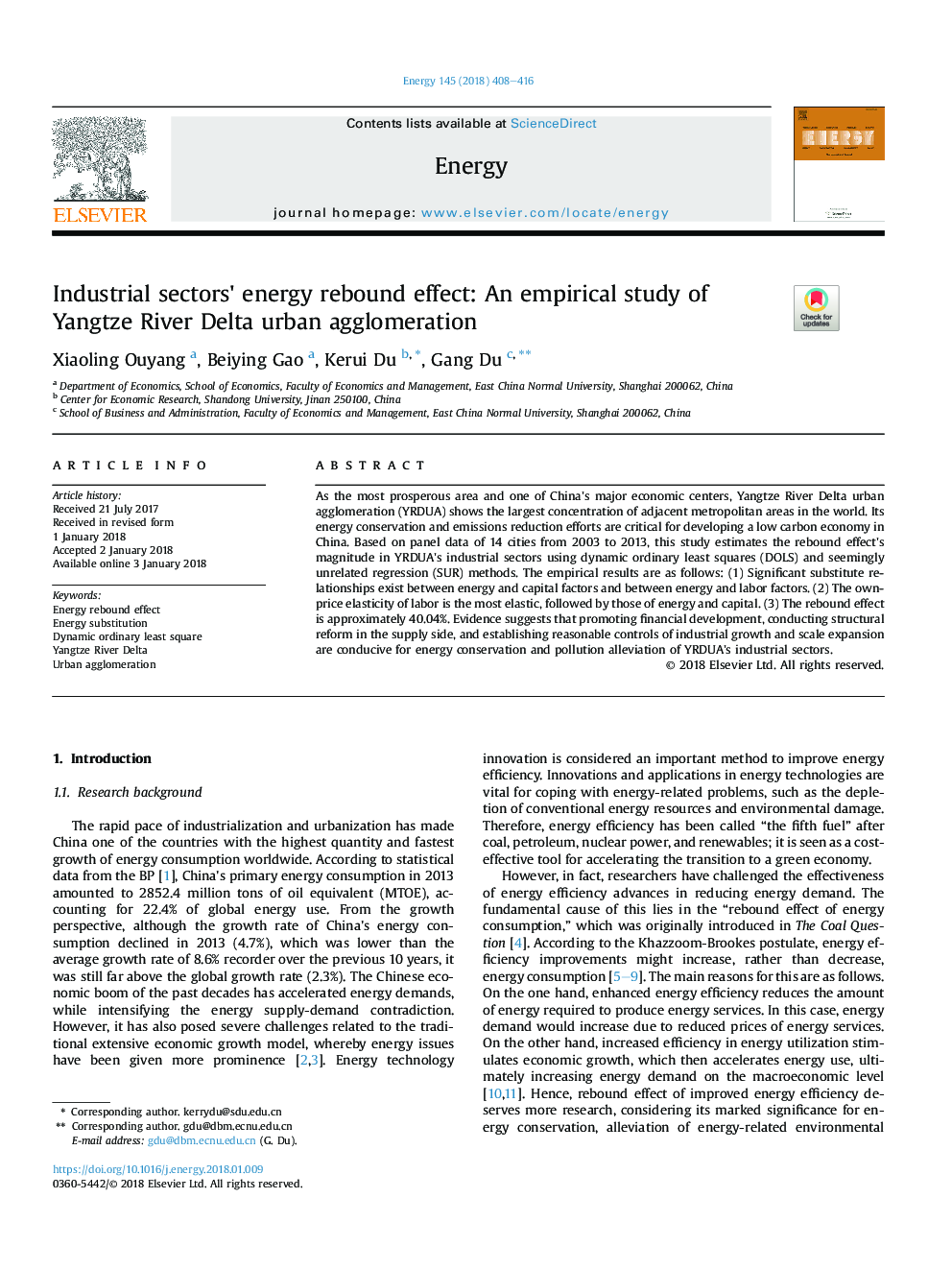| Article ID | Journal | Published Year | Pages | File Type |
|---|---|---|---|---|
| 8072215 | Energy | 2018 | 9 Pages |
Abstract
As the most prosperous area and one of China's major economic centers, Yangtze River Delta urban agglomeration (YRDUA) shows the largest concentration of adjacent metropolitan areas in the world. Its energy conservation and emissions reduction efforts are critical for developing a low carbon economy in China. Based on panel data of 14 cities from 2003 to 2013, this study estimates the rebound effect's magnitude in YRDUA's industrial sectors using dynamic ordinary least squares (DOLS) and seemingly unrelated regression (SUR) methods. The empirical results are as follows: (1) Significant substitute relationships exist between energy and capital factors and between energy and labor factors. (2) The own-price elasticity of labor is the most elastic, followed by those of energy and capital. (3) The rebound effect is approximately 40.04%. Evidence suggests that promoting financial development, conducting structural reform in the supply side, and establishing reasonable controls of industrial growth and scale expansion are conducive for energy conservation and pollution alleviation of YRDUA's industrial sectors.
Related Topics
Physical Sciences and Engineering
Energy
Energy (General)
Authors
Xiaoling Ouyang, Beiying Gao, Kerui Du, Gang Du,
